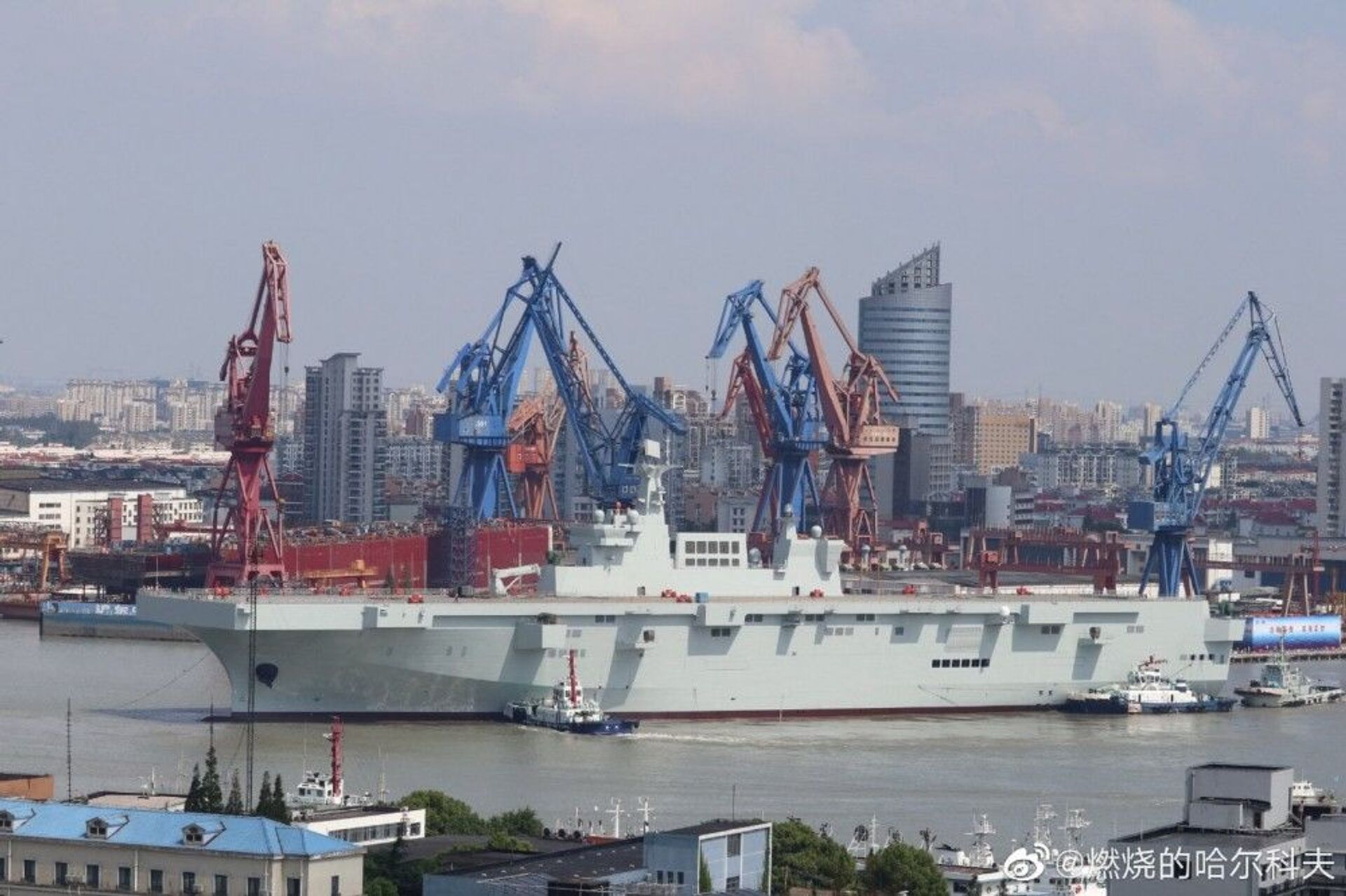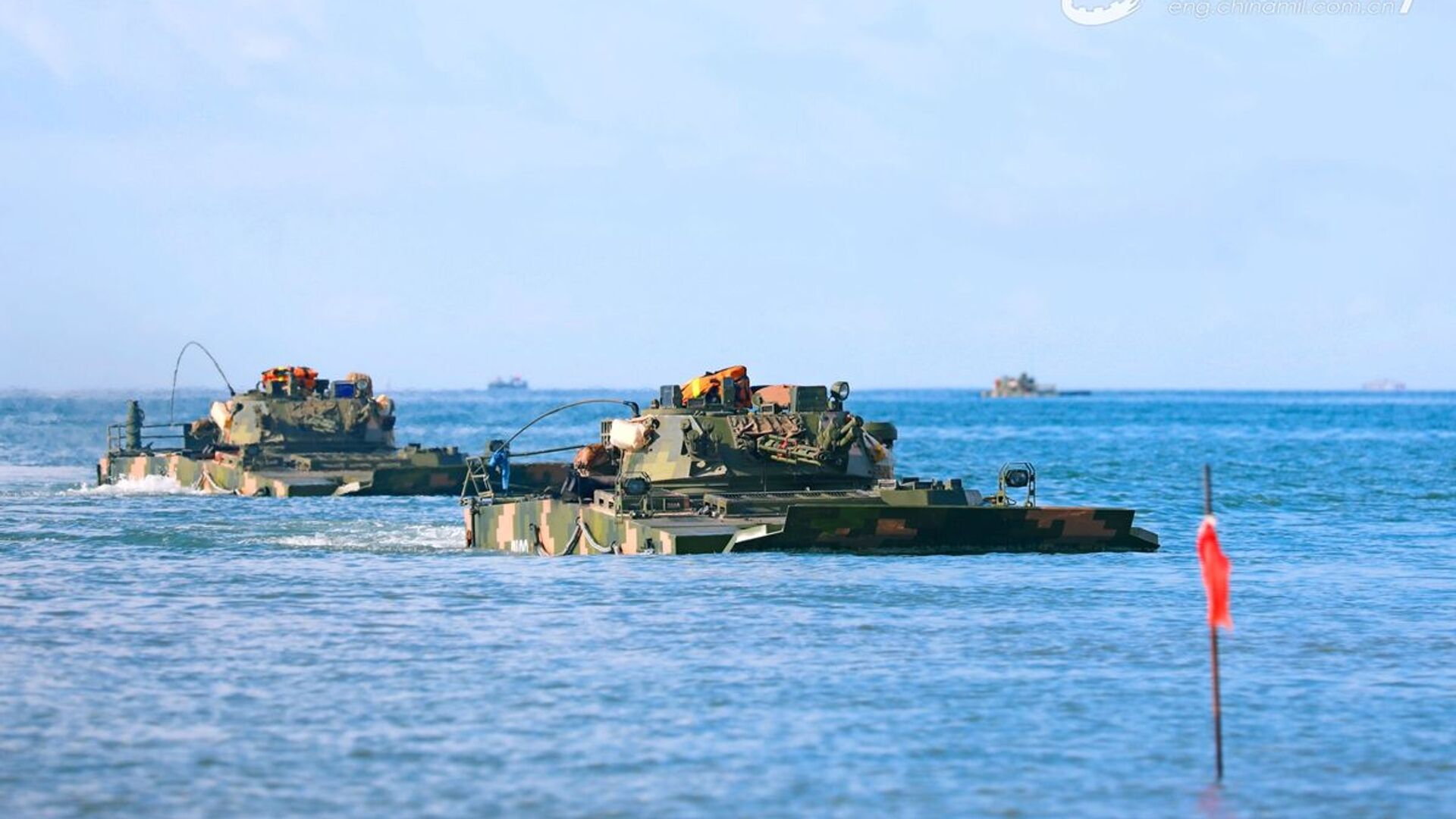US General Watching China ‘Like a Hawk’ for Taiwan Invasion, Says ‘Haven’t Seen Anything So Far’
19:29 GMT 04.03.2022 (Updated: 12:43 GMT 19.06.2023)
Subscribe
The head of the US Pacific Air Forces on Thursday said that his surveillance assets were watching Chinese President Xi Jinping “like a hawk” for signs that the People’s Liberation Army is preparing to invade Taiwan.
“I haven’t seen anything so far, but that doesn’t mean they haven’t talked about it internally and doesn’t mean that they won’t try something,” Gen. Kenneth Wilsbach said at the Air Force Association’s annual conference, according to Air Force Times.
Since Russia launched its special military operation in Ukraine last week, speculation has increased that China could make a similar move against Taiwan. Beijing regards the autonomous island as a Chinese province in rebellion, and sees US aid to the government in Taipei as meddling in China’s internal affairs.
The US agreed with that notion in principle when it normalized relations with Beijing in 1979, but has continued to openly but informally funnel military aid to Taiwan, as well as provide the island nation with diplomatic support in international affairs. Just a handful of nations recognize the Republic of China government in Taiwan as the legitimate government of all of China - nearly all are small states firmly in the US orbit.
Beijing continues to assert that Taiwan is destined to reunite with mainland China, but prefers that it be done peacefully. Jinping’s government proposed a “one country, two systems” approach akin to Hong Kong, a former British colony that London returned to Beijing in 1997. Under the system, local autonomy is preserved in a “special administrative region” to accommodate the conversion of Hong Kong’s capitalist system toward Chinese socialism, but certain overarching national laws also apply, such as those for national security.
China has long accused the US of encouraging separatist forces in Taiwan, especially through the increasingly close relationship with the government of the pro-independence president of the island, Tsai Ing-wen, since she took office in 2016. Beijing has warned that if Taiwan declares itself an independent country, it would mean war.
The US and Taiwan have accused China of planning to invade Taiwan for more than a year, after Taipei began scrambling fighter jets in response to Chinese aircraft flying through a broad area of international airspace that Taipei claims as its “air defense identification zone (ADIZ).”
Such zones have no basis in international law, but Chinese aircraft flights are commonly reported in Western media as “violations of Taiwanese airspace,” making it seem as if the PLA is banging at the metaphorical gates. One such flight on February 24, the day Russia’s special military operation began in Ukraine, aroused particular anxiety, but turned out to be as uneventful as the previous flights.

China's Type 075 landing helicopter dock (LHD), an aircraft carrier that carries amphibious assault forces, docked in Shanghai
While China has given no indication that it will soon move against Taiwan, the US seems intent on provoking a reaction. Earlier this week, a delegation of more than half a dozen former top US security officials traveled to Taiwan to meet with Tsai and other senior Taiwanese figures, and the following day, former CIA director and former US Secretary of State, Mike Pompeo, arrived for his own visit.
On Friday, Pompeo posted a series of tweets calling for US President Joe Biden to recognize Taiwan as an independent state, calling it a “political, diplomatic and sovereignty reality.”
“It is my view that the US government should immediately take necessary, and long-overdue, steps to do the right and obvious thing, that is to offer the Republic of China (Taiwan) America’s diplomatic recognition as a free and sovereign country,” the Trump-appointed diplomat said.
“This isn't about Taiwan’s future independence, it's about recognizing an unmistakable already existent reality. That reality is, as many of your past & present leaders have made clear, there's no need for Taiwan to declare independence because it’s already an independent country.”
Asked about Pompeo’s comments at a Friday presser, Chinese Foreign Ministry spokesperson Wang Wenbin described him as a “former politician with bankrupt credibility. His lunatic remarks will lead nowhere.”

